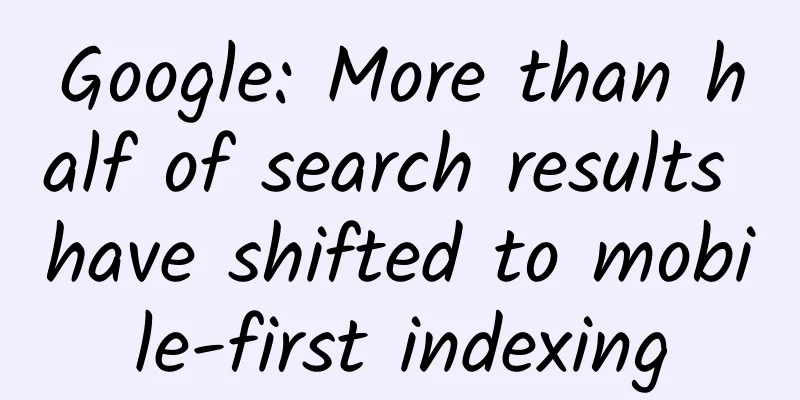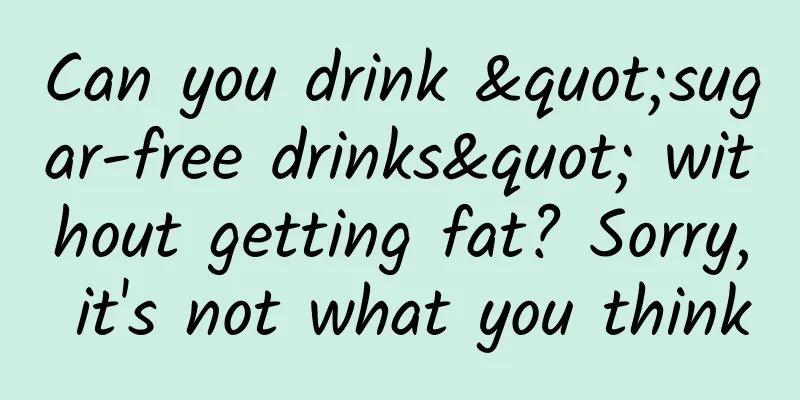Google: More than half of search results have shifted to mobile-first indexing

|
According to US technology media TechCrunch, Google announced today that more than half of all search results use mobile-first indexing, which means that Google search results are more biased towards mobile websites rather than PC websites. Google has been working for many years to achieve this result. In 2016, Google first advocated mobile-first indexing and explained its impact on search indexing. At that time, Google said that in the future, when indexing pages, it would tilt towards mobile website content, understand its structured data, and display mobile website snippets in Google search results. Today, most people access Google Search through mobile devices, but Google's search ranking was built for the PC era. Because of this, the system looks at the PC web content to determine how relevant it is to the user. If the PC and mobile are out of sync, problems will arise. Before responsive web design became popular, many website owners would build special versions of their websites that were simpler than the desktop version, kept separate, and sometimes had less information, specifically for mobile visitors. Through Google searches, users were directed to the mobile version of the website. Once there, users could not find the content they were looking for because it only existed on the desktop version of the website. In December 2017, Google began to shift a small number of websites to mobile-first indexing. After a year and a half of testing, Google officially promoted mobile-first indexing at the beginning of this year. When moving to mobile-first indexing, if the website does not introduce responsive web design, there may be two major problems. First, some websites use structured data on the desktop version, but not on the mobile version. Only by using structured data can Google understand the content of the website and highlight the content of the web page in the search results. Second, on some mobile websites, images do not have text tags (Alt-text), which makes it difficult for Google to understand the content of the images. |
Recommend
Which industries are suitable for Momo information flow? Promote industry analysis!
Mobile Internet is in a state of vigorous develop...
How to make a complete advertising plan?
How to make an advertising plan ? Make a 30-page ...
How much does an electrophoresis device cost?
The above person is right, it depends on the size...
Image of lipstick: What is keyword density? Is SEO optimization affected by its density?
Many friends who don’t understand SEO don’t know ...
If food is stuck in your teeth, it may be your teeth crying out for help! Don’t take it lightly…
Almost everyone has experienced food stuck in tee...
Forbes: Apple's iOS and OS X system quality decline threatens future growth
Beijing time, December 23 news, "Forbes"...
Start a course - Artificial Intelligence Core Competencies Phase 7 - NLP Major
Kaikeba - Artificial Intelligence Core Competenci...
Faraday Future hires former BMW electric car executive to accelerate FF91 mass production
According to foreign media reports, Faraday Futur...
Practical traffic diversion skills for Douyin (Part 1)
In order to help you learn the course better, tod...
Can you send iMessages on your Android phone? How does weMessage work?
iPhone to Android: But what about iMessage? Nowad...
Apple releases iOS 11.4 beta 4 with information sync feature
Recently, Apple pushed iOS 11.4 beta 3 to develop...
Android screen adaptation - just read this article
The reason why Android screen adaptation appears ...
Interpreting ASP.NET 5 & MVC6 Series (15): MvcOptions Configuration
Program model handling IApplicationModelConventio...
Ogilvy's Brand Marketing Model and Strategy
This time, I would like to share with you Ogilvy ...
How much does it cost to attract investment in Dehong’s second-hand car app?
How much does it cost to attract investment throu...









